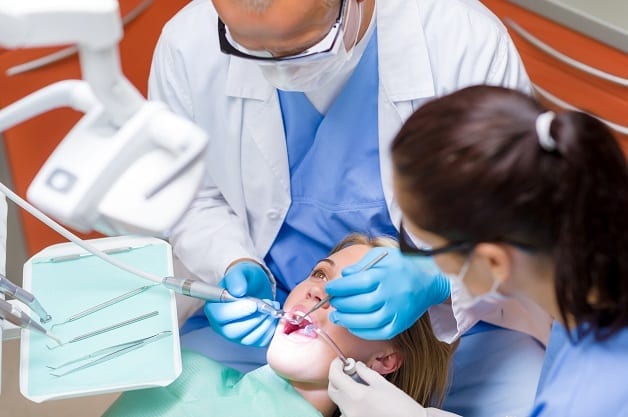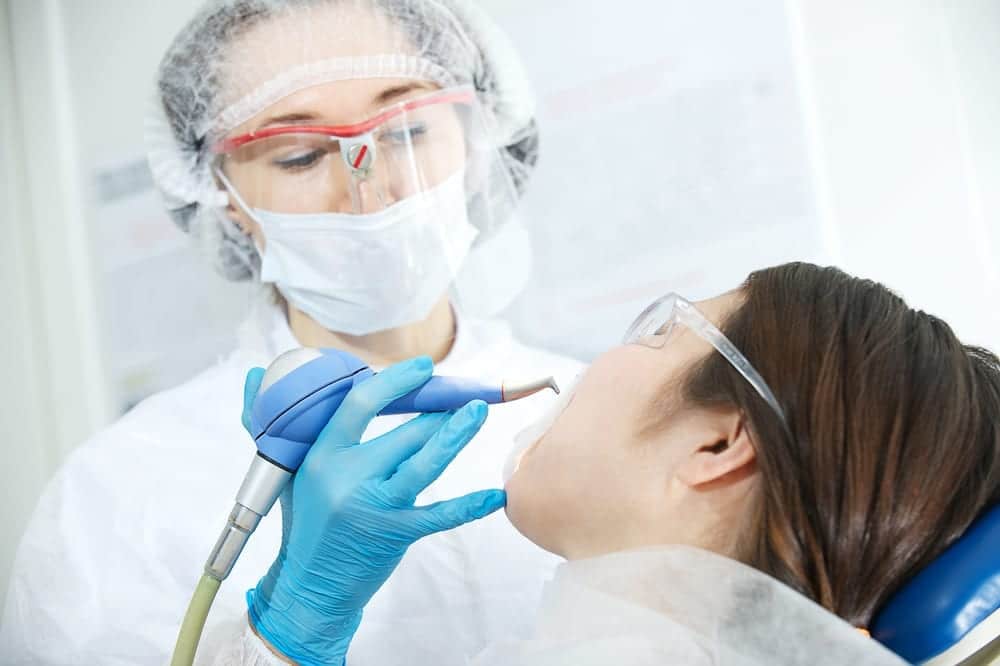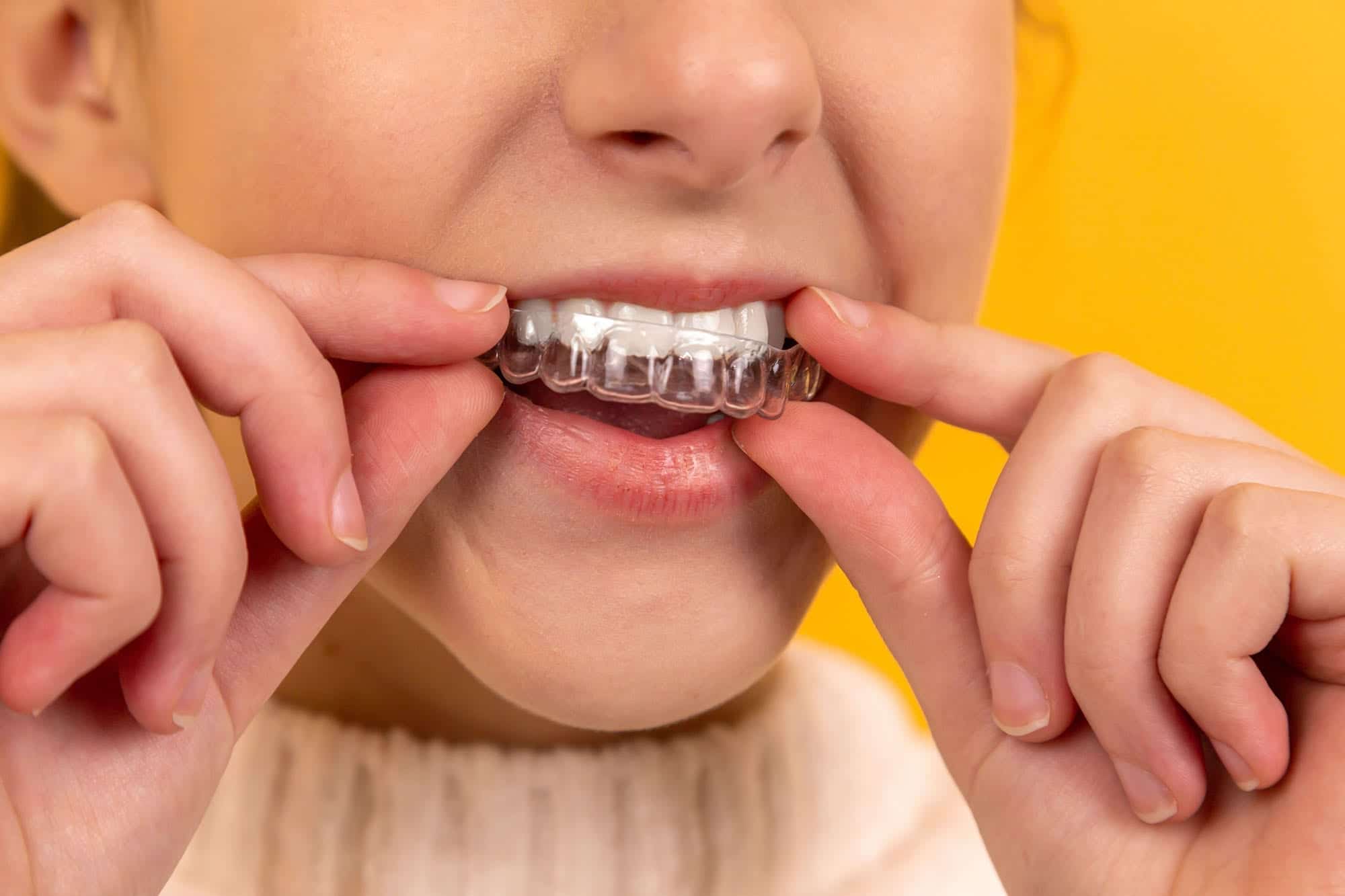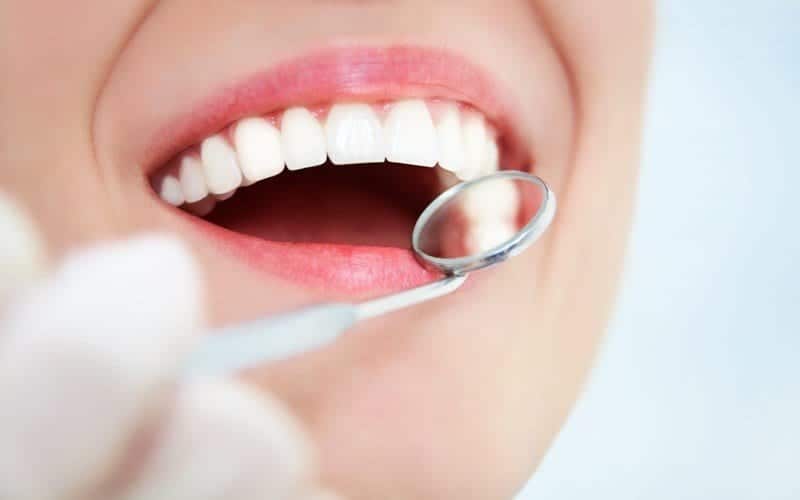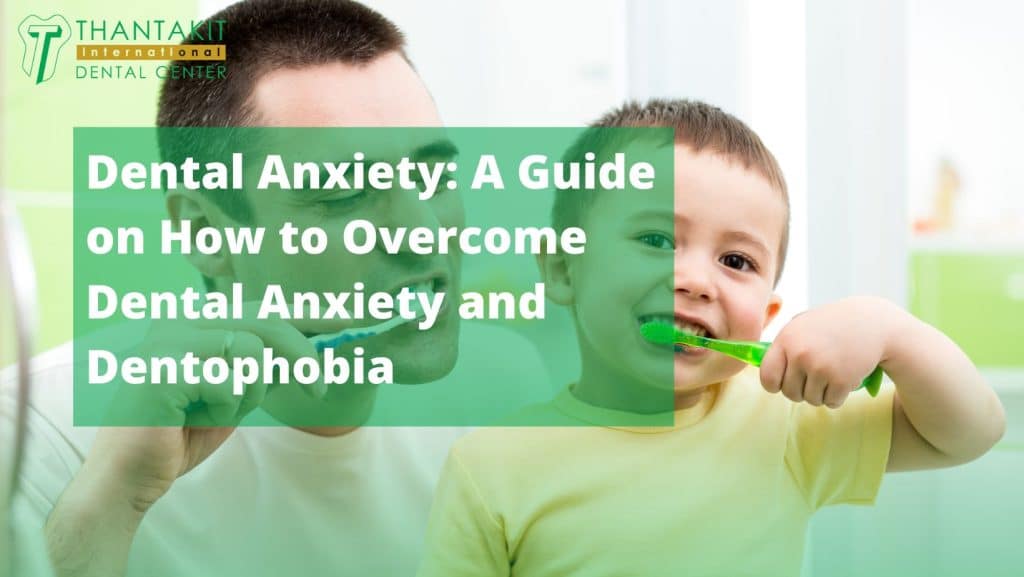Dental Anxiety: A guide on how to overcome dental anxiety and fear of the dentist, including tips on finding a dentist who specializes in treating anxious patients.
If you’re afraid of visiting the dentist to fix your dental issues, you might be suffering from dentophobia. You’re also one of many.
Did you know that nine to 20 percent of people in the United States avoid getting dental treatment because of their anxiety over dentists or fear of dental treatments? Thus, it is already considered a nationwide problem.
They’re usually forced to visit the dentist because of extreme toothaches or dental emergencies. If you’re one of them and wish to overcome your dental anxiety and phobia, then keep on reading.
Page Contents
Dentophobia versus Dental Anxiety
People who are anxious about dentistry are different from people with dentophobia. Dentophobic people end up terrified and panic-stricken by the dentists themselves. They are aware of their irrational fear but can’t do anything about it.
They tend to avoid going to the dentist to the best of their abilities, so they also showcase classic avoidance behavior. The other signs of dental anxiety or dentophobia include the following.
- On the night before your dentist’s visit, you have trouble sleeping.
- If the mere thought of visiting a dentist for an exam leads you to feel physically ill or outright cry.
- If you’re feeling nervous during the dentist visit, with your dread growing stronger as you stay inside the waiting room, that’s a definite sign of anxiety.
- If you’re feeling intense unease when objects are placed inside your mouth for dental procedures, or even the mere thought of such makes you have trouble breathing.

Why are Patients so Afraid of Dentists and Dental Operations?
There are several reasons behind the dental anxiety of many would-be dental patients. The following are some of the most common causes of dental anxiety.
Dentophobia: If you’re afraid of the dentist himself, it’s usually linked to negative feelings for the doctor rooted in trauma from having a bad experience with him or another dentist. His operation on your mouth might have led to unexpected pain, invasion of personal space, or misunderstandings.
Fear of Pain: It’s only natural for people to fear pain. Going to the dentist can be quite painful—not only in your wallet but also literally painful. The fear can even stem from earlier dentist visits that were unpleasant or outright traumatizing.
People who are overly sensitive to pain might fear feeling discomfort during the treatment. After all, you need to brace yourself because even with anesthesia, you might have to deal with mild to severe pain during recovery or after the anesthesia wears off.
Loss of Control: Several patients have also confessed to hating the feeling of helplessness and loss of control when they’re put under anesthesia for a dental treatment. They feel various emotions from the circumstances when opening their mouth while lying on a dentist’s chair, unable to see what the dentist is doing.
Fear of Dentist Clinic Noises and Smells: The noise of dental drills and other instruments scraping at the teeth’s surface might be intimidating to some. The primal part of their brain might even feel an aversion to getting their teeth drilled.
This fear ties in with smells, too. Like with sounds, smells can intimidate, nauseate, or induce panic in people. Certain antiseptic or chemical aromas that arise during treatment will trigger people into a state of fear or despair.
Fear of Anesthetic Side Effects: Some patients are afraid of anesthesia side effects, which include things like nausea, dizziness, and feeling faint. Others dislike the fat lip or numbness associated with the administration of local anesthetics.
Fear of Injections: Some patients fear injections or think they don’t work. These people hate the idea of sticking needles into themselves, especially in something sensitive like the inside their mouths or right into their fleshy gums.
Some fear the anesthesia won’t work or the dose isn’t enough to eliminate the upcoming pain of a full dental treatment such as tooth extraction or a root canal procedure.
Fear of Choking: Some patients don’t like the possibility of choking or gagging as the dentist numbs their mouth and gums with anesthesia before going about his work. They’re also fearful of not being able to swallow or breathe.
Invasion of Personal Space: The physical closeness required by the job of a hygienist or dentist can put many people off the concept of dentistry. They might also feel self-conscious about what their teeth might look like and if they’re suffering from halitosis or bad breath.
Fear of Blood: Dental anxiety might be more about hemophobia (fear of blood) than dentophobia (fear of dentists and dental doctors). Or you could end up afraid of both.
You may feel panicky or fearful about the actual presence or possibility of minor bleeding. Bleeding is to be expected during dental procedures, especially when it comes to extraction or even dental cleaning.
To cope with dental anxiety, a patient needs to talk about their fears with a trusted dentist, whether they are a family dentist or someone from Thantakit Dental Center in Thailand. Once he knows about your discomfort, he can adjust to your needs.
It can get embarrassing to undergo dental treatment because the dentist is required to move closer into your personal space to do his work. Many people are understandably uneasy about this.
Dentists can indeed work better by determining the best ways to make a patient relax and feel more comfortable with the operation.
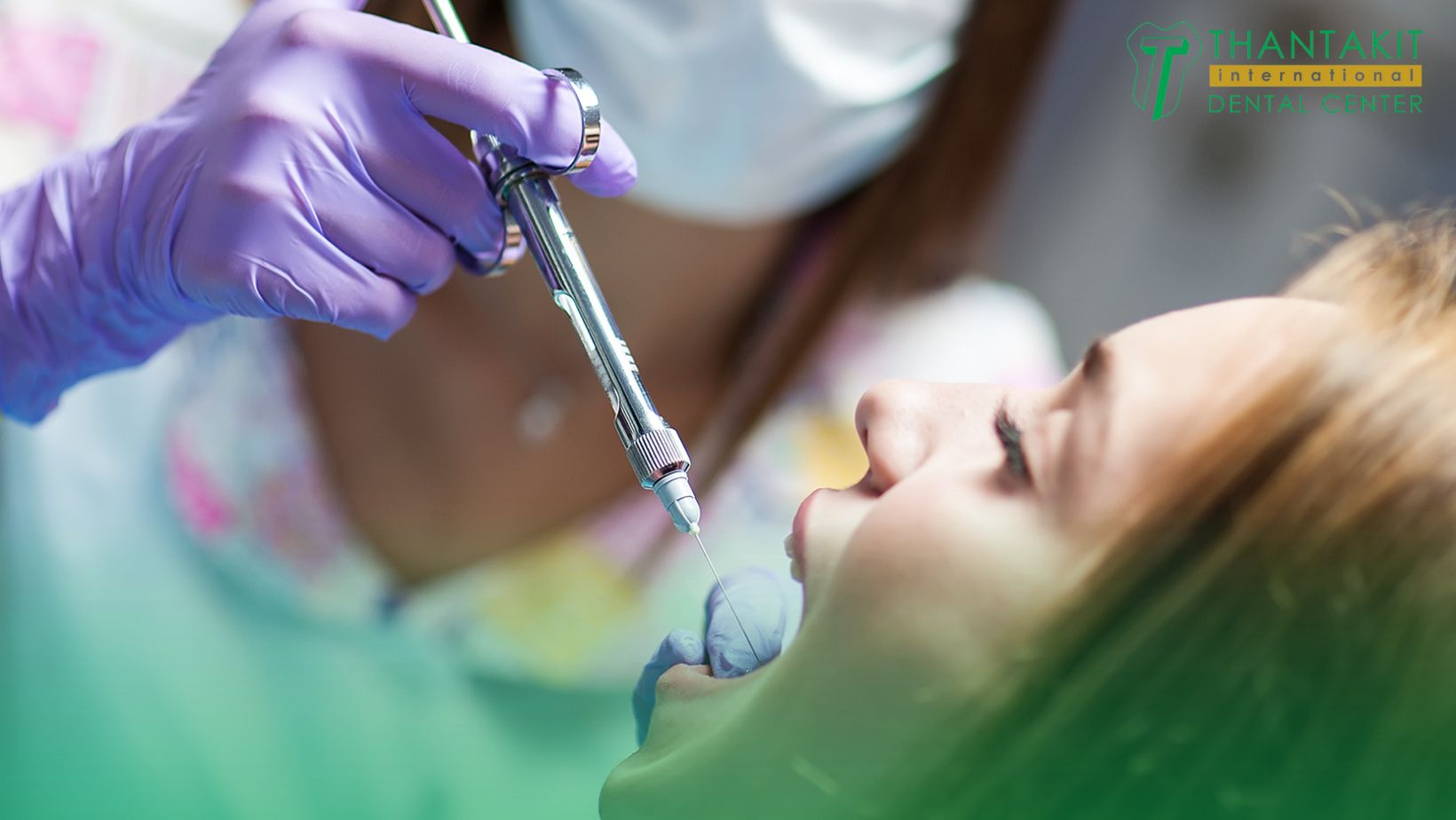
How Common is Dental Anxiety and Dentophobia?
Did you know that about 36 percent of Americans have dental anxiety? Meanwhile, 12 percent of Americans suffer from extreme dental anxiety or outright dentophobia.
As far as industrialized countries are concerned, about 3 percent of adults suffer from dentophobia and avoid going to the dentist altogether. Fearing dentists is more of a phenomenon among females than males, according to numerous studies and surveys.
There are even studies suggesting that 5 percent of women and 3 percent of men suffer from a fear of dentists and dental procedures.
Thankfully, the advancements in 21st-century dentistry ensure that modern dental treatments are considerably less painful than dentistry from the 20th Century. Some procedures are even outright painless.
Who Are at Risk for Dental Anxiety?
People would be more likely to develop a fear of dentists or dental anxiety if they’re already suffering from any of the following conditions:
- Anxiety disorder
- Substance use disorder
- Another preexisting phobia
- Panic attacks or panic disorder
As for the other phobias linked with dental anxiety and dentophobia, they include the following:
- Algophobia (Fear of Pain)
- Hemophobia (Fear of Blood)
- Iatrophobia (Fear of Doctors)
- Emetophobia (Fear of Vomiting)
- Trypanophobia (Fear of Needles)
- Haphephobia (Fear of Being Touched)
What are the Symptoms and Triggers of Dental Anxiety?
The symptoms of dental anxiety or outright dentophobia can include the following mild to extreme symptoms.
- Chills
- Nausea
- Dizziness
- Lightheadedness
- Heart palpitations
- Shaking or trembling
- Shortness of breath (Dyspnea)
- Excessive sweating (Hyperhidrosis)
- Upset stomach or indigestion (Dyspepsia)
Dental anxiety or dentophobia triggers include the following.
- Lying on a dentist’s chair.
- Thinking about visiting the dentist.
- Seeing the dentist or dental hygienist himself.
- Seeing or hearing dental instruments at work.
- Going or being inside a dentist clinic or center.
The triggers of dental anxiety can also cause people to elicit the following reactions or behaviors.
- Cry when thinking about the dentist visit.
- Have a panic attack when triggered during the visit.
- End up with insomnia or sleeplessness before the appointment.
The Causes of Dental Anxiety and Dentophobia
Family History: If you have parents, siblings, or relatives with dentophobia, your risk for the phobia increases. It’s the same deal if they suffer from some sort of anxiety or panic disorder as well. You may be more anxious than other people due to genetics and gene mutation.
Feelings of Embarrassment: If you’re prone to feeling shame as an individual or culturally, you might fear the dentist or hygienist out of embarrassment about how your teeth look or your breath smells. You might also not like the invasion of personal space involved.
Feelings of Helplessness: Patients like yourself can also fear the dentist due to feeling helpless and being at his mercy. You have to lie on a dentist’s chair for an hour or so with your mouth open while the dentist does his job. This might make you feel violated because there’s a loss of agency involved.
Modeling: Modeling happens when you develop a phobia for dentists after merely hearing others talk about their own dentophobia. You’re modeling your reaction after theirs. Thus, you become phobic of dentists by proxy.
Past Negative Experiences: If you’ve had a negative traumatic experience linked to going to the dentist, you can end up with dental anxiety. It might be an overreaction on your part or a justified one due to extreme circumstances.
This includes being traumatized going to the dentist at a very young age, having dental procedures performed on you without you consenting to them, or suffering from severe pain or complications after the visit.
Traumatic History: Unrelated traumatic history such as child abuse, sexual violence, domestic abuse and violence, bullying, and so forth might translate to fear of dentists because it also involves a loss of agency and invasion of personal space but in a different context.
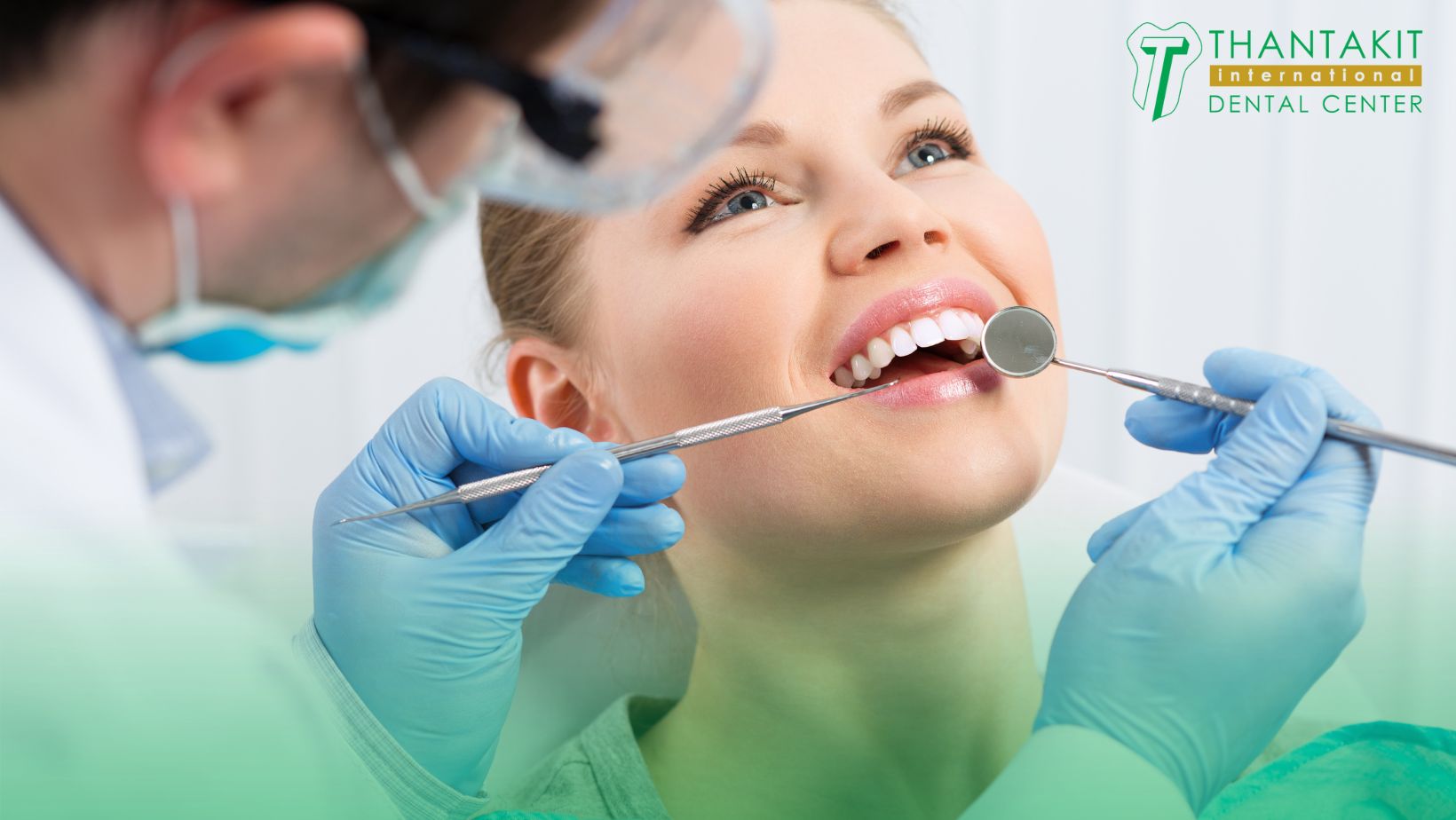
Management and Treatment
There are ways to manage dental anxiety. They include the following.
Distraction Tactics: A dentist can give you distractions like TV shows, movies, music, or even video games to help keep your mind off the actual dental treatment that’s occurring and stave off your panic.
Discuss What to Expect with the Dentist: If one of your main stressors is lack of control, you can actively participate in a dialog with your dentist about the treatment. This can help alleviate your discomfort.
Feel free to question the dentist about what will happen at every stage of the procedure so that you’re better prepared for what to expect. Mental preparation can tremendously help when it comes to relaxing yourself.
Signals and Safety Gestures: A helpful strategy is to have a signal, like raising your hand, to get the dentist to stop once you’re overstimulated by what’s happening. Use the signal whenever you feel discomfort and need to catch your breath or rinse your mouth.
Exposure Therapy: You can learn to desensitize yourself over the prospect of visiting the dentist you dread so much. Exposure therapy is one of the main treatments for dental anxiety and dentophobia.
It involves exposure to images and situations that can trigger your anxiety symptoms with the assistance of a mental health professional. A controlled setting is used when undergoing exposure so that you can carefully work through your responses.
During exposure therapy, you’ll do the following.
View videos or images of people having a dentist visit.
Undergo a harmless checkup and dental cleaning with a hygienist or dentist.
Learn muscle relaxation and breathing techniques to use before and during a dentist appointment.
Gradually work your way up to visiting the dental center without getting further exposure therapy sessions.
Talk Therapy: Psychiatric consultation might be called for in extreme cases of pathologic phobia or dental anxiety. You can improve your dental anxiety symptoms with the assistance of a psychiatrist by talking to him about your fears, triggers, history, and traumas.
Cognitive Behavioral Therapy: CBT is a type of therapy used by many healthcare providers in tandem with exposure therapy. It assists in helping you reframe the way you react to objectively harmless stimuli and triggers related to dentist visits so that you won’t overreact to them in fear every time.
Acupuncture: You can have a trained acupuncturist insert hair-thin needles into your body at specific pressure points for the sake of anxiety relief linked to going to the dentist.
Sedation Dentistry: One of the ways to alleviate dental anxiety on short notice is to avail yourself of sedation dentistry. It’s when you’re put under strong sedatives instead of just local anesthetics so that you’re asleep while undergoing dental treatment.
The heavy sedatives used include the following.
Oral sedative pills
Nitrous oxide (Laughing gas)
Type IV sedation (sedatives taken intravenously or through a vein)
You’ll be sleeping while your teeth are worked on, and then it’ll be all over once you wake up. You’ll need someone to pick you up and take you home afterward, though.

Find a Dentist Who Takes Your Fears Seriously
Find a dentist who’ll take your dentophobia or dental anxiety seriously. Otherwise, find someone else to clean or treat your teeth properly. Thankfully, all of Thantakit’s best doctors also know how to deal with dental anxiety.
Fear usually comes when you worry about the unknown. Knowledge helps you sleep better at night because you know what to expect.
Maintaining your dental health also depends on consistent checkups. You need to overcome your fears to at least be able to visit a dentist once or twice every year for the sake of your teeth’s future.
What about Dental Financial Aid?
If you’re having difficulty affording dental care services, you can acquire discounts from local dental clinics or insurance premiums with dental coverage to cut costs down.
You can also avail of assistance programs or sponsorships from dental schools and public health clinics if you’re really short on funds. If you’re of retirement age, you can even get senior citizen discounts for good measure.
If you still need more than those to cover your bases for dental maintenance, then book a dental tour at Thantakit Dental Center in Thailand ASAP. You won’t regret it.
Thantakit International Dental Center is Thailand’s longest-established dental center. Situated in Bangkok, our clinic is renowned across the world as a destination for world-class dentistry, with most of our patients flying to us from Australia.
Please contact us today and get a FREE dental consultation.



